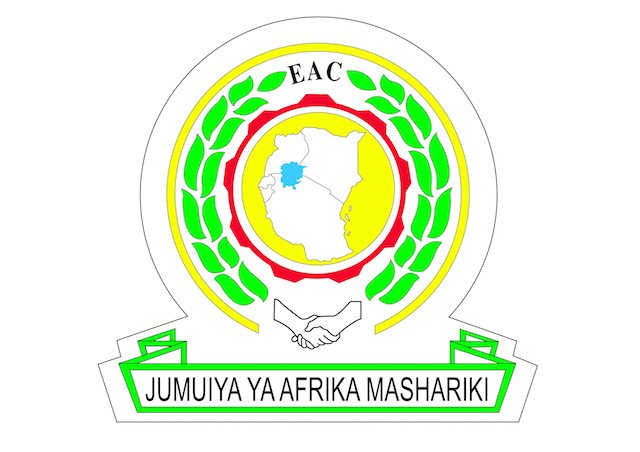
Sectoral Council on Agriculture and Food Security directs on Rift Valley Fever outbreak
East African Community Headquarters, Arusha, Tanzania, 21st June 2018: The 11th meeting of the Sectoral Council on Agriculture and Food Security (SCAFS) that concluded on 15th June 2018 in Arusha, Tanzania, has directed the Secretariat to urgently convene a meeting of the Technical Working Group on Transboundary Animal and Zoonotic Diseases (TADs) to address the issue of Rift Valley Fever outbreak, which has been reported in the region.
The 11th meeting of the Sectoral Council, which was attended by, among others, Hon. Vincent Bamulangaki Ssempijja, Uganda’s Minister of Agriculture, Animal Industry and Fisheries and Hon. Eng. Dr. Charles John Tizeba, United Republic of Tanzania’s Minister of Agriculture, also directed the Secretariat to include emerging and re-emerging diseases as a permanent agenda item in the subsequent meetings of the Sectoral Council on Agriculture and Food Security.
At least 26 people in two north-eastern counties in Kenya are suspected of having contracted Rift Valley Fever (RVF). By 16 June 2018 seven of these cases were confirmed and six of the people had died according to the World Health Organization (WHO).
The outbreak was reported to WHO and OIE, the International Organization for Animal Health. In Rwanda, the Ministry of Agriculture and Animal Resources confirmed cases of RVF among cattle after samples were tested at the Rwanda Agriculture Board Laboratory. South Sudan reported an outbreak of RVF in March and is reported to be containing the situation.
The East African Community (EAC) Secretariat is closely monitoring the outbreaks and is urging the Partner States that are not yet affected by RVF to step up surveillance to detect any spread of the disease to their territories at an early stage and to inform the public about the risk and about preventive measures.
The affected areas in Kenya include the counties of Wajir and Tana River on the border to Somalia and in Rwanda the districts of Kayonza, Kirehe and Ngoma. Kirehe borders Burundi, Tanzania and Uganda causing a risk for the cross-border spread of RVF.
RVF is a virus disease that is transmitted by infected mosquitos. This year’s heavy rainfall has resulted in widespread flooding in low-lying grasslands. Flooding and standing water enabled a higher number of mosquito eggs than usual to hatch and thus increased the potential for RVF to spread among people and animals. The RVF virus is endemic in the EAC region and has caused repeated outbreaks in the past. It affects primarily ruminant livestock, such as cattle, sheep, goats and camels, and also wildlife, such as buffalos. In these animals it causes abortions and deaths and significant economic loss.
The RVF virus can also affect humans. Most infections are mild, but some people fall severely ill and even die with symptoms such as fever, weakness and bleeding from gums and mouth. The majority of human infections result from direct or indirect contact with the blood, body fluids, or tissues of infected animals. This can happen during slaughtering or butchering, while assisting with animal births, treating the animals and from contact with disposed carcasses or foetuses. Human-to-human transmission of RVF has not been documented.
The EAC Partner States of Kenya and Rwanda have increased their surveillance and put measures in place to stop the disease from spreading further. These measures include cost-free vaccination, restrictions in the movement of animals, bans on slaughtering animals for public consumption and trade bans as well as awareness raising campaigns among the public and especially among herders and small holders. They are advised to immediately report any domestic ruminant that show signs and symptoms of RVF.
Against this backdrop and to supplement the efforts of the Partner States in combating RVF in the Community, the EAC Secretariat urges the owners of livestock, people working with wildlife and citizens in the region to be alert and comply with the following precautionary measures:
- Livestock farmers should contact the Veterinary Services Authorities in the respective Partner States for information on vaccinating their animals against RVF and restrict animal movement to limit the spread of RVF;
- People in contact with ruminants should practice hand hygiene, wear gloves and other appropriate individual protective equipment when handling sick animals or their tissues or when slaughtering animals;
- People should avoid consuming fresh blood, raw milk or animal tissue and products without thoroughly roasting them; and
- They should protect themselves against mosquito bites through the use of impregnated mosquito nets, personal insect repellents - if available, light coloured clothing (long-sleeved shirts and trousers) - and by avoiding outdoor activities at peak biting times of mosquitos.
-ENDS-
For more information, please contact:
Mr Owora Richard Othieno
Head, Corporate Communications and Public Affairs Department
EAC Secretariat
Arusha, Tanzania
Tel: +255 784 835021
Email: OOthieno [at] eachq.org
About the East African Community Secretariat:
The East African Community (EAC) is a regional intergovernmental organisation of five Partner States, comprising Burundi, Kenya, Rwanda, Tanzania and Uganda, with its headquarters in Arusha, Tanzania.
The EAC Secretariat is ISO 9001:2008 Certified
